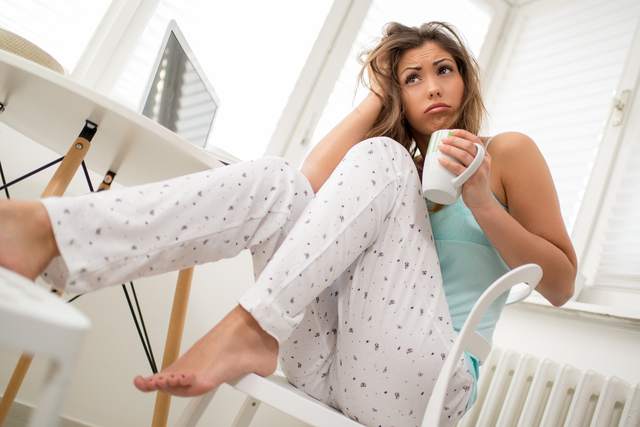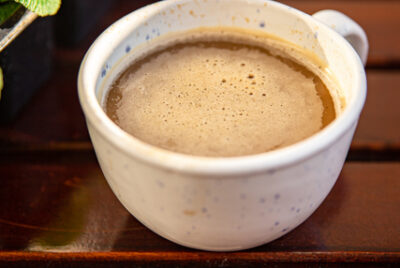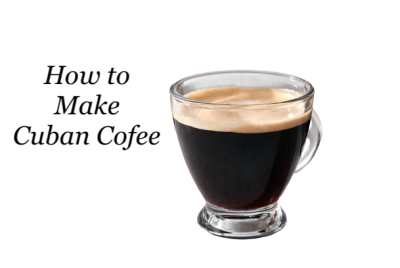Does Coffee Help Hangovers: A Coffee Lover’s Perspective
As a fellow coffee enthusiast, I get it. The first thing you reach for in the morning is that warm, comforting mug of coffee. Especially after a night of overindulgence, the idea of coffee’s caffeine jolt to battle a sluggish mind seems like the perfect solution. That being said, the question “Does coffee help hangovers?” has been widely debated.
I set out to finally answer once and for all: Does coffee really help hangovers?
Understanding Hangovers: A Brief Overview
The Anatomy of a Hangover
Hangovers, we’ve all been there. They’re the unpleasant aftermath of too much alcohol. Nausea, headaches, dizziness, and an overall feeling of being under the weather are just some of the symptoms we might experience. But what’s really happening in your body? Essentially, alcohol dehydrates you, leading to these hangover symptoms.
Why Coffee Might Seem Like a Good Solution
Coffee, rich in caffeine, is a well-known stimulant. It boosts alertness, reduces fatigue, and improves mood, at least temporarily. It’s no wonder it’s the go-to solution for waking up or staying alert. And after a night out, it’s tempting to think that it could serve as a quick hangover cure.
The Effects of Coffee on Hangovers
The Upside: Alertness and Mental Clarity
Yes, coffee can offer a temporary respite from some aspects of a hangover. Caffeine, the active ingredient in coffee, stimulates the central nervous system, helping us shake off the sleepiness and lethargy commonly associated with hangovers.
Remember that Sunday morning when you woke up with a throbbing headache after a night out with friends? Your head felt heavy, and your mind foggy. It was one of those times when getting out of bed seemed like an insurmountable task. And then, the smell of freshly brewed coffee wafted in from the kitchen, reaching your senses and pulling you out of your drowsy stupor. With each sip, you could feel your senses waking up. Your mind, once shrouded by the fog of a hangover, began to clear up. The lethargy started to fade away, replaced by a newfound energy. That’s the power of caffeine, the trusty ally we often lean on in the fight against hangover-induced fatigue.
The Downside: Dehydration Risk
But, here’s the flip side of the coin. Coffee, despite its magical powers, isn’t a perfect solution for hangovers. Coffee can be a tricky friend, as it also acts as a diuretic, increasing urine output and potentially exacerbating the dehydration caused by alcohol.
Imagine this scenario: You’ve had a heavy night of celebration. You wake up the next morning, your head pounding, mouth dry, and an unpleasant taste lingering. You groggily reach out for your coffee mug, hoping to find solace in its warm, comforting embrace. The initial relief is immediate, a rush of alertness, the headache subsiding a bit. But then, as the day progresses, you find yourself heading to the bathroom more often. Each trip leaving you thirstier, the dryness in your mouth persisting, your headache returning. In your attempt to use coffee to shake off your hangover, you have, unintentionally, worsened your state of dehydration.
It’s like a double-edged sword. On one edge, it’s our lifeline, our morning pick-me-up, our fatigue fighter. On the other, it risks leaving us in a state of dehydration, the very condition that fuels our hangover symptoms in the first place.
But don’t despair, fellow coffee lovers. We don’t need to abandon our beloved brew. Instead, let’s learn how to use it wisely in our fight against hangovers. Let’s not forget to balance the stimulating effects of our cherished coffee with a healthy dose of hydration and nourishment. In that balance lies our best defense against hangovers.
Scientific Views on Coffee and Hangovers
The scientific community has offered some interesting perspectives on the relationship between coffee and hangovers. While research in this area is ongoing and the final word is yet to be said, it’s worth examining some of the existing studies and their findings.
Does Coffee Help Hangovers: Studies in Support
Several studies have pointed towards the potential benefits of coffee when it comes to dealing with hangovers. A study published in the journal Alimentary Pharmacology & Therapeutics found that caffeine, when combined with pain relievers such as aspirin, can help combat the headaches associated with hangovers. This is because caffeine has properties that enable it to narrow the blood vessels and counteract the vessel-swelling effects of alcohol.
In addition, a body of research suggests that coffee might aid in metabolizing alcohol, thereby potentially reducing hangover symptoms. A study in the American Journal of Clinical Nutrition found that drinking coffee could potentially speed up the body’s ability to process alcohol, thanks to an enzyme called CYP1A2 that both metabolizes caffeine and helps the liver clear alcohol.
Moreover, the anti-inflammatory properties of coffee could possibly provide a buffer against the inflammatory effects of alcohol. A 2014 study from the Journal of Immunology shows that coffee can lower inflammation levels in the body, which might alleviate some hangover symptoms since alcohol consumption is known to cause inflammation.
Does Coffee Help Hangovers: Studies Against
Conversely, other studies suggest caution when reaching for that cup of joe as a hangover cure. Scientists have long recognized that coffee can act as a diuretic, leading to increased urine output. If you’re already dehydrated due to alcohol consumption, drinking coffee could further aggravate this condition and make hangover symptoms worse. A 2014 study published in the journal Alcoholism: Clinical & Experimental Research reported that consuming caffeinated beverages while hungover could lead to more severe headaches and increased dizziness.
Moreover, a study in the Journal of Food Science points out that while caffeine can make you feel more alert, it does not reverse the negative cognitive impact of alcohol. This means that while you may feel more awake after drinking coffee, it does not counteract the impairments to memory, reaction times, and decision-making abilities caused by alcohol.
In a nutshell, while some scientific studies suggest coffee might help in some ways, others show that it might exacerbate some hangover symptoms. It’s a complex relationship, underscoring the need for moderation and a holistic approach to dealing with hangovers.
Coffee vs. Other Hangover Remedies
Let’s delve deeper into how coffee compares with other commonly recommended hangover remedies.
Hydration
Hydration is perhaps the most crucial element in combating a hangover. As alcohol is a diuretic, it leads to increased urination and potentially significant fluid loss, which is why you often wake up dehydrated after a night of drinking. Rehydrating your body, therefore, is the primary goal.
Here’s where coffee can be a mixed bag. As discussed earlier, while coffee can stimulate your senses and make you feel more awake, it can also potentially aggravate dehydration. Drinking water or other hydrating beverages, such as sports drinks or coconut water, can replenish your fluids more effectively. They provide your body with essential electrolytes lost during excessive urination, helping to restore the body’s water balance.
Healthy Diet
Eating a balanced diet can help replenish the nutrients your body needs to recover from a night of heavy drinking. Foods rich in vitamins and minerals can help to replenish what’s lost in the hustle and bustle of alcohol metabolism.
While coffee itself doesn’t provide these nutrients, it can be part of a balanced post-drinking meal. Having a cup of coffee with a nourishing breakfast, such as whole grains, eggs, or fruits, can help kickstart your day while also giving your body the nutrients it needs to recover.
Sleep
Getting a good amount of sleep allows your body the time it needs to recuperate from a night of drinking. Alcohol can significantly disrupt your sleep cycle, reducing the quality of sleep and making you feel groggier the next day.
Here, again, coffee’s role is a double-edged sword. A cup of coffee can perk you up and clear your mind, but too much of it, especially in the latter half of the day, can interfere with your sleep. Unlike sleep, coffee does not help your body to recover; it merely masks the fatigue.
Medication
*Always consult a doctor first before taking any medication*
Over-the-counter pain relievers can help with headaches and muscle aches associated with hangovers. Some people find relief with NSAIDs like ibuprofen, while others prefer aspirin. However, it’s important to avoid acetaminophen (paracetamol) after heavy drinking, as it can lead to liver damage when mixed with alcohol.
Interestingly, studies show that combining caffeine (from coffee) with pain relievers can enhance their effectiveness. However, remember that this does not address the root cause of the hangover, which is primarily dehydration and nutrient depletion from alcohol.
The Best Ways to Use Coffee to Combat a Hangover
Now that we’ve established the potential benefits and pitfalls of coffee in the context of hangovers, let’s examine how best to use our beloved brew to alleviate the aftermath of a night out.
1. Timing is Key
First things first, timing is everything. Your body needs time to metabolize the alcohol you’ve consumed. Downing a cup of joe immediately after you wake up might jolt you awake, but it could also exacerbate dehydration. Wait a bit after waking up before you brew that first cup. Use this time to hydrate with water or a rehydration solution, and to grab a light breakfast.
2. Moderate Your Coffee Consumption
Second, moderation is key. A standard cup or two of coffee might be just what you need to shake off the fog of a hangover. But don’t go overboard. Too much coffee can lead to increased urination and further dehydration.
Remember, coffee is not a hangover cure, but rather a tool to help manage some of the symptoms. It’s not a magic potion that will make everything go away but rather a soldier in your hangover recovery arsenal.
3. Balance with Hydration
Third, balance your coffee intake with plenty of hydration. For every cup of coffee you consume, match it with a glass of water or an electrolyte-rich drink. This will help offset the potential diuretic effect of coffee and keep your body well-hydrated.
4. Pair with a Nutritious Breakfast
Fourth, pair your coffee with a nutritious breakfast. While coffee can help clear your mind and boost your energy levels, it doesn’t replenish the nutrients that your body has used up metabolizing alcohol. A balanced breakfast will provide the vitamins and minerals needed for recovery.
5. Listen to Your Body
Finally, always listen to your body. Everyone’s body reacts differently to alcohol and hangovers. Some might find that coffee helps them recover faster, while others may find it exacerbates their symptoms. If you find that coffee worsens your hangover symptoms, it’s best to avoid it.
Does Coffee Help Hangovers Conclusion
Does coffee help hangovers? Coffee can both help and hinder when it comes to dealing with hangovers. While it can provide temporary relief from fatigue and mental fog, it may also worsen dehydration. The key is moderation and balance. As a coffee lover myself, I advocate for enjoying your brew, but also taking care of your body, and knowing when to turn to other remedies.
Does Coffee Help Hangovers FAQ
1. Does coffee cure hangovers? No, coffee doesn’t cure hangovers. It can, however, help with some hangover symptoms such as fatigue and mental fog.
2. Can coffee make my hangover worse? Potentially. Coffee is a diuretic and could exacerbate dehydration caused by alcohol.
3. What’s the best hangover remedy? Hydrating, eating a balanced diet, and getting enough rest are among the best remedies.
4. Can I drink coffee after drinking alcohol? You can, but it’s crucial to also drink water and replenish nutrients to help your body recover.
5. Can caffeine help metabolize alcohol? Some studies suggest this, but the evidence is not conclusive. It’s better to rely on hydration and rest to recover from a hangover.




